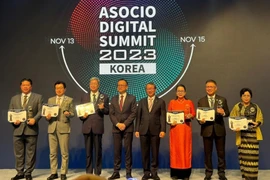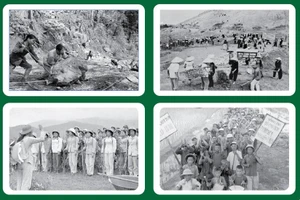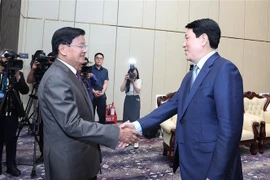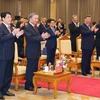See more
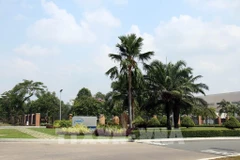
HCM City hi-tech park targets tech giants
To date, the SHTP hosts 160 valid investment projects with a total capital of over 12.3 billion USD, including 10.3 billion USD in FDI. Exports from the park have surged dramatically, from just 500 million USD in 2010 to over 20.7 billion USD in 2024.

Proactive security crucial in response to more sophisticated cybercrimes: Experts
In response to the evolving threat landscape, the Politburo’s Resolution No. 57-NQ/TW, issued on December 22, 2024, regarding breakthroughs in science, technology, innovation, and national digital transformation, highlighted cybersecurity as a core priority.
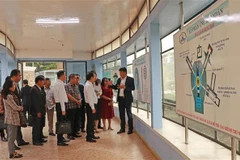
Experts discuss nuclear energy development for national growth in new era
These developments underscore the Party and State’s determination to harness atomic energy as a strategic lever to ensure energy security, drive sustainable development, and deliver on Vietnam’s commitment to net-zero emissions by 2050.
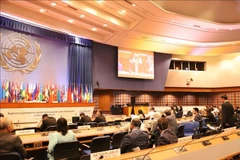
Vietnam prioritises science, technology, digital transformation to drive development
Delivering a speech at the 81st session of the United Nations Economic and Social Commission for Asia and the Pacific (ESCAP), held at the UN Conference Centre in Bangkok on April 24, Hung, who also serves as Vietnam’s Permanent Representative to ESCAP, affirmed the country’s support for the UN’s efforts to strengthen global governance of technology in line with its charter and international law.
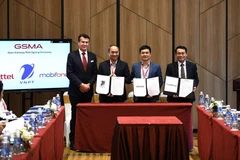
Vietnam’s telecom giants team up for digital safety
Three major telecom operators namely MobiFone, Viettel, and VNPT will jointly develop a standardised platform to enhance network interoperability and drive digital transformation through the GSMA Open Gateway initiative, by deploying CAMARA APIs.
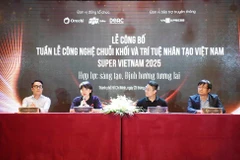
Vietnam to host blockchain and AI week 2025
The programme, announced on April 23 in Ho Chi Minh City, is jointly organised by Orochi Network, FPT Online, and the Da Nang Centre for Research and Training in IC Design and AI (DASC). It aims to attract domestic and international resources to promote digital transformation and enhance Vietnam’s global tech standing.

Academic exchanges promote Vietnam-Russia digital cooperation
The event, held in both in-person and online formats, aimed to facilitate academic exchanges, share experiences, and propose new directions for cooperation between the two countries in the context of increasingly robust global digital transformation.
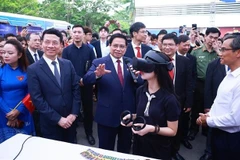
Innovation, digital transformation not limited by gender, age, or religion: PM
Notably, the institutional framework for science, technology, innovation, and digital transformation has been continuously improved; digital infrastructure has grown rapidly; the digital economy has made significant strides; digital data systems are being developed, connected, and utilised more effectively. The national innovation system and startup ecosystem are gradually taking shape and proving effective. Several Vietnamese enterprises have gradually mastered core and foundational technologies, and the country’s international rankings continue to improve.
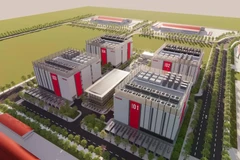
Viettel breaks ground on large scale data centre in Vietnam
The project is set to become one of the largest data centres in Southeast Asia and the first in Vietnam to reach hyperscale capacity.
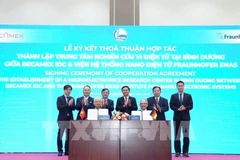
First microelectronics research centre to be formed in Binh Duong
Under the agreement, the centre will be developed based on the Fraunhofer model, Europe’s renowned innovation platform, focusing on applied research and innovation to serve industry and society. The partnership will centre on two key pillars of project management (financial planning and public-private partnerships) and and scientific research (feasibility study and development strategies of semiconductor and microelectronics sectors in Vietnam).

PM applauds youth entrepreneurship at National Startup Day for Students
Since its inception seven years ago, Project 1665 has achieved significant milestones. All universities, academies, colleges, vocational schools, and 63 provincial/municipal Departments of Education and Training now have actionable plans to support student entrepreneurship.
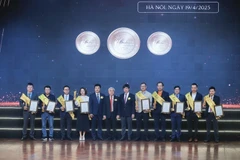
Sao Khue Award 2025 honours 198 standout digital solutions, services
The 198 winning nominations from 125 companies achieved total revenue of some 48 trillion VND (nearly 2 billion USD) in 2024, or almost 20% of Vietnam's entire software and IT services industry earnings.
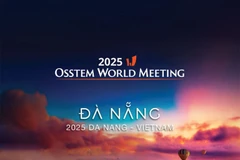
Vietnam first hosts Osstem World Meeting 2025
In Vietnam, the demand for dental implants has rapidly increased due to rising economic standards and living conditions, along with growing interest in oral health care. Vietnam has also emerged as a hub for medical tourism in Southeast Asia, including dental care, and is expected to see significant growth in the dental industry.
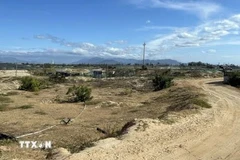
Nuclear energy development to facilitate green transition: Conference
Deputy Prime Minister Nguyen Chi Dung emphasised that developing atomic energy, including nuclear power, is essential to achieving double-digit economic growth and supporting Vietnam’s green and digital transitions.
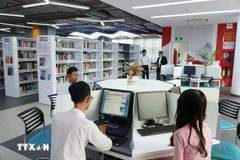
Vietnam calls for global actions to promote green transition
According to the minister, green and sustainable development must be based on science and technology, innovation, and digital transformation.
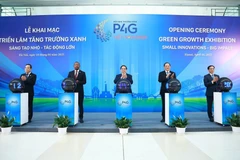
Green Growth Exhibition showcases practical solutions in key sectors
Exhibitors are showcasing practical solutions in key sectors such as renewable energy, smart agriculture in response to climate change, biomaterial technology, carbon management, green logistics, and environmentally friendly products for global supply chains.
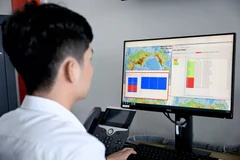
Largest-capacity submarine cable system in Vietnam becomes operational
The Asia Direct Cable (ADC) is an undersea fiber optic cable system that spans approximately 9,800 kilometers, connecting Vietnam, China, Hong Kong (China), Thailand, the Philippines, Singapore, and Japan. Notably, it connects to three major data hubs of Asia, namely Singapore, Hong Kong and Japan.

All urban, rural areas to be equipped with 5G Massive MIMO by 2026
The goal is to ensure equal access to technology for all citizens, regardless of geography, helping to bridge the digital divide and enabling the digital economy to contribute 30% of Vietnam’s GDP by 2030.
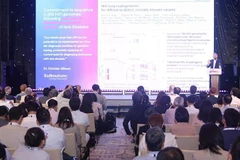
Vietnam hosts int’l genomics conference for first time
Vietnam is the first stop in a global PRISM conference series, with upcoming events scheduled for Athens (Greece), San Francisco, and Boston (the US). This also marks the second time the event has taken place in Southeast Asia.
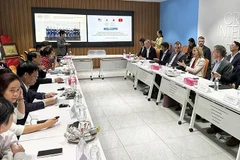
HCM City seeks stronger hi-tech cooperation with US, Japan, RoK
At the meeting, Director of HCMC C4IR Le Truong Duy shared the city’s vision to establish a world-class public-private technology exchange platform. This hub will serve as a gateway for cutting-edge technologies from the US, Japan, and the Republic of Korea to enter Vietnam, enabling collaborative innovation and creating valuable tech products for the global market.



